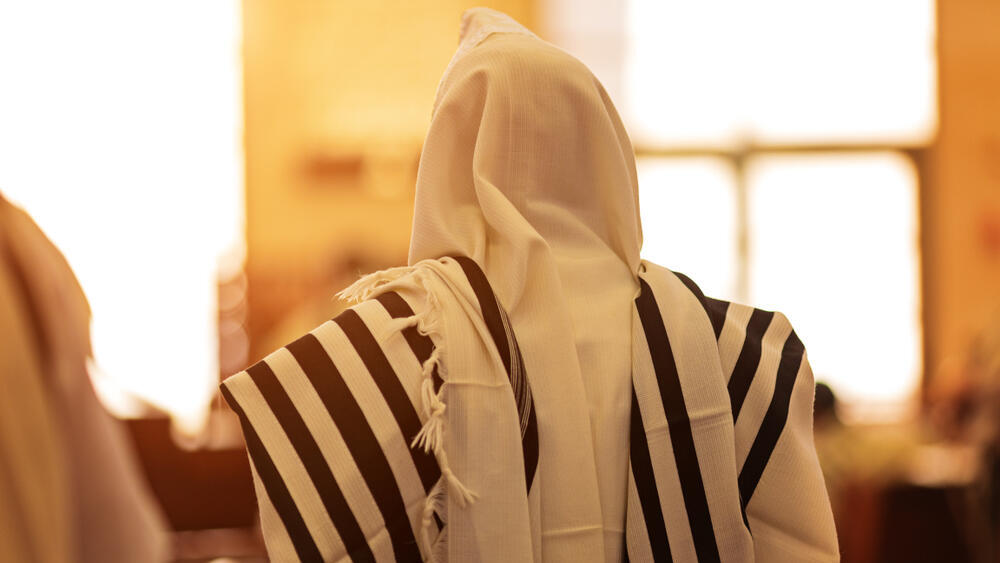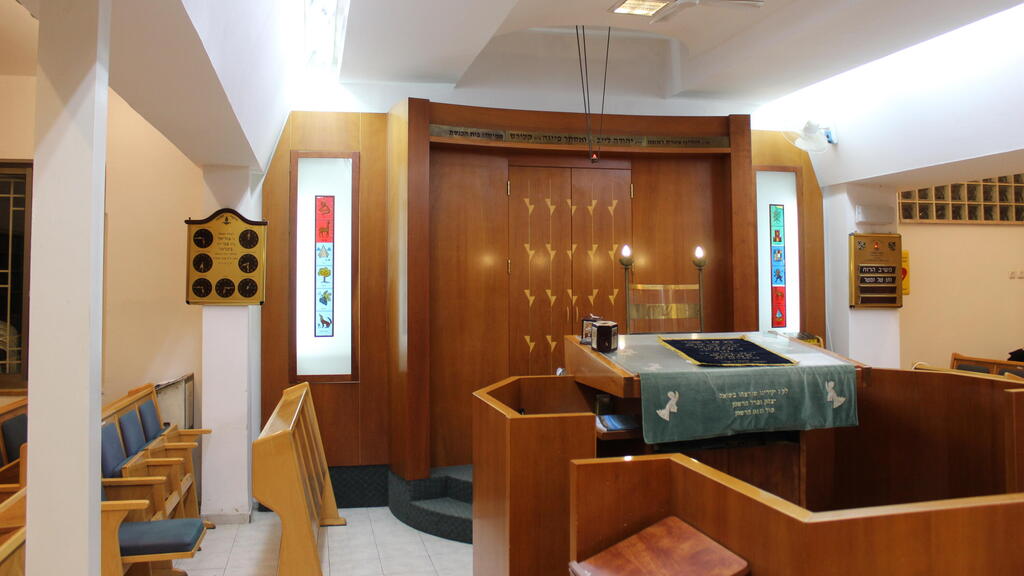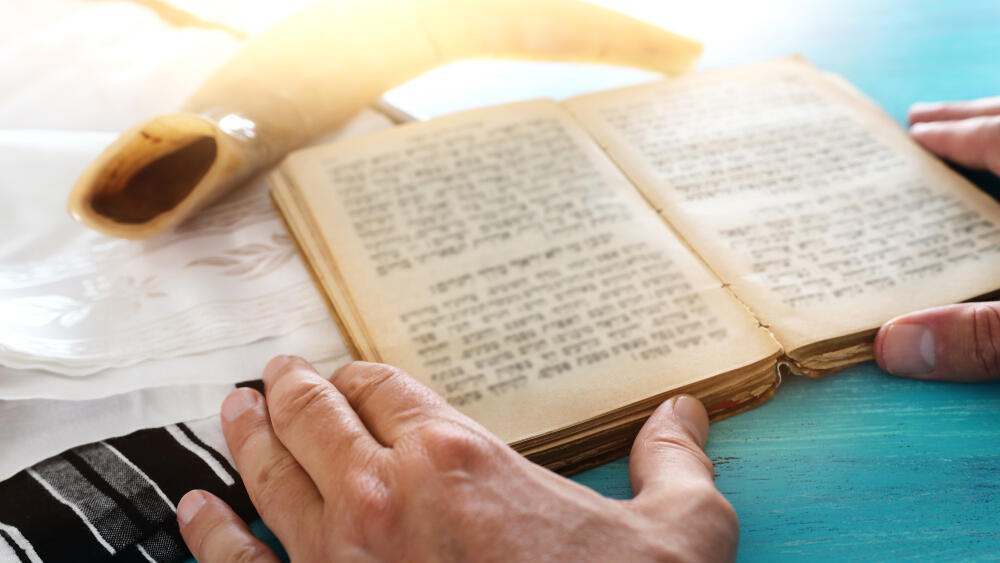If you ask gabbais – or ritual leaders - in synagogues, they will tell you that Rosh Hashanah and Yom Kippur are called the "Days of Awe" because they include the potential for awful conflicts between the congregants, the cantors and whoever blows the shofar.
More stories:
For example - if the cantor who leads the prayers at your place of worship upsets the public because of his hoarse voice or his insistence on long and tedious melodies and poems, there is a problem with replacing him because of a halachic concept called chezkat or, loosely, tenure: the position is apparently occupied by the cantor, and his consent to the change is required.
3 View gallery


The Days of Awe include the potential for awful conflicts between the congregants, the cantors and whoever blows the shofar
(Photo: Shutterstock)
"This is one of the most sensitive issues in Israeli communities," says Rabbi Dr. Avraham Stav, author of several books on Jewish law. "Over the years, a halachic norm has been formed that says that if someone has started to fulfill a certain role, even once, it is no longer possible to transfer him from his role. There are countless discussions among the arbitrators about what exactly is considered 'possession', whether it is also inherited (spoiler: once upon a time - yes, today less so), and under what conditions the public may cancel it."
He adds that "an equally important issue is how a cantor is chosen in the first place and what are the necessary criteria. Jewish law clearly states that it is more important to find a public messenger who is God-fearing and virtuous, than a cantor with a beautiful voice. And especially during the Days of Awe, a cantor is needed who is already old and has a family and not a carefree young man."
So what do we actually do?
"In practice, all the rabbis who wrote on the subject for hundreds of years took great pains to emphasize that there is one rule that is more important than all the other details - that the cantor be desirable to the public that he represents. That is why it is permitted and even obligatory to postpone the services wherever a dispute may arise."
Abroad services are longer, in Israel they are shorter.
Shai Abramson, 49, is the official national cantor of the State of Israel and the chief cantor of the Israel Defense Forces, but on Rosh Hashanah and Yom Kippur he will be in Toronto, Canada, and will stand in front of the ark, accompanied by a choir, at the Shaarei Shomayim Synagogue.
"In Israel people usually pray faster, shorter and the public is much more involved," says Abramson. "In Israel, in Ashkenazi synagogues, Rosh Hashanah prayers usually begin at 8 a.m. and finish around 12:30 p.m. or 1:00 p.m.. Abroad they finish between 1:00 p.m. and 2:00 p.m., and this also includes the rabbi's sermon which takes about half an hour."
Why so long?
"Abroad, it is more common to hear a cantor and a choir, and the congregation sometimes also becomes passive. The hazan becomes dominant, as the one who leads and directs the prayer, and of course he has a decisive role in inspiring the public and will use his entire musical toolbox for that purpose."
How do you mediate on Rosh Hashanah between the cantor's desire to impress the public, and the public who wants to be impressed by the food at home?
"I always remind my students and all those who consult me, that we are first and foremost public messengers. As such, we have the duty to check carefully the wishes of the majority of the public in the specific community that we serve as the cantor. In a community that loves cantors, it is possible to perform cantorial solos, and in communities that want a shorter service, we will make an effort to be brief and not bother the public. Everything in the right dose, in the right balance and with an attentive ear and a finger on the pulse throughout the prayer service. The rule of "know before whom you stand" is true, but constantly examine yourself and who puts you in front of a messenger's pulpit - the public".
Is the prayer long? The rabbis are not to blame.
By the way, it turns out that in the past the Rosh Hashanah and Yom Kippur prayer was shorter. According to Dr. Akiva Sternberg, a researcher of the history of Jewish law, "the deep identification of the public and the hazan with the prayers of the Days of Awe and the sanctity of these days led them throughout the generations to add piyutim – or liturgical poems - to the text of the prayer on their own initiative."
How did the rabbis treat it?
"Rabbi Migash (Joseph ibn Migash), who lived in Spain at the beginning of the 12th century, responded to the public's demand and noted, 'After all, it is permissible and there is no one to protest about it.' He only asked to be careful not to change the wording of the blessing itself. In contrast, Rambam strongly objected: 'It is proper not to say anything from these words in prayer.'
"It seems that, over the generations, the public continued the popular custom of adding piyutim to the prayer service. However, as the custom of adding original piyutim spread, so their quality decreased. As a result, Rabbi David Ibn Zimra (the "RaDBaZ"), who lived about 300 years after Rambam, continued to struggle with this phenomenon and noted: 'Things that are lost by the poets of our time should not be lost.'
The game of thrones, … er, chairs
For many years now, on every Yom Kippur, Rabbi Boaz Ganot, from the Tzohar organization, has been volunteering at the prayer services that the movement organizes throughout the country. These prayer services are intended for Israelis who rarely come to the synagogue throughout the year and are less familiar with the text.
According to Ganot, although in the vast majority of cases, the gabbais are happy to host non-regular worshipers, "on the Days of Awe, the synagogues are full and the gabbais reserve places for regular worshipers and those who are willing to donate to the synagogue. Therefore, there is a chance that if you arrive at the synagogue spontaneously, you may find yourself without a place to sit, or find yourself in a pleasant situation."
He says that "the best thing to do is to prepare in advance and contact the gabbai at the synagogue you intend to go to. Usually, the name of the gabbai will be available through an internet search, specifying the name of the synagogue and the address. But even if you have not prepared in advance, do not give up on coming to the synagogue. When you arrive, ask one of the worshipers who the gabbai is, then approach him quietly and ask if there is a certain place where you can sit or if there is an available seat."
Centuries of excuses
Finally, it is impossible not to address the sensitive and explosive issue of "buying a seat" in synagogues during the holidays. It is important to understand that in Israel the Ministry of Religious Affairs and the local authorities do not finance the maintenance of synagogues, and they certainly will not pay money to have a quality cantor in your synagogue who is experienced in blowing the shofar.
For this reason, when people receive the honor of a Torah blessing during the year they are often expected to donate to the synagogue. But the donations are not enough, so it is customary to charge a special fee for the use of the seat throughout the year, and especially during the holidays.
You know those people who say "I don't want to pay because I won't be here on the holidays anyway"? Sternberg checked and found that this excuse is more than 500 years old. "In the 15th century, Rabbi Yaakov Halevi ben Moshe Molin, nicknamed the Maharal, lived in Magnatsa (now Mainz) in Germany. The community was responsible for financing all the expenses of the synagogue and hiring cantors for the Days of Awe, and a question arose regarding the duty of a woman to participate in these costs, when her husband was absent from the city for business purposes."
What did the rabbi decide?
"The Maharal ruled that if the husband's absence was due to 'business or crime,' his family must participate in the community expenses 'and his friends will not lose their share.' In doing so, he prevented a reality in which individual people could avoid their obligations to their fellows, and preserved the community's ability to maintain its institutions and prayers continuously throughout the years."



